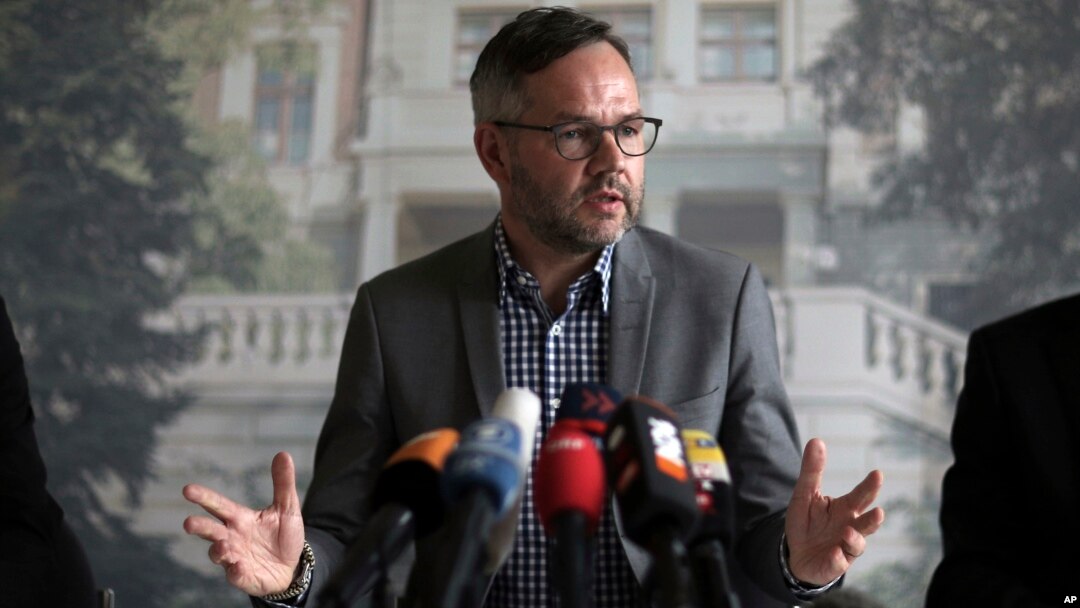German officials met Tuesday with a German-Turkish journalist imprisoned in Istanbul for the first time since his incarceration, saying he was doing well but voicing concerns that he was being kept in jail for political purposes and calling for his release.
German Foreign Ministry official Michael Roth, a deputy foreign minister, told reporters that Die Welt correspondent Deniz Yucel met with Consul General Georg Birgelen and a German consulate attorney in prison.
“He's doing well overall given the circumstances, but is finding the solitary confinement a great strain,” Roth said.
It was the first consular contact Yucel has been allowed since he was arrested on charges of producing terrorist propaganda and incitement to hatred - accusations he denies. He was taken into custody in mid-February after reporting on a hacker attack on the email account of the country's energy minister and formally arrested later in the month.
Roth thanked Turkey for providing access to Yucel, and said Germany expects to be able to continue to send consular officials to meet with him and is working to have him freed.
“He's obviously being made a political project of,” Roth said, noting that Turkish President Recep Tayyip Erdogan had mentioned the case.
“The case has a political and a legal dimension.”
Roth said Yucel is only one of more than 100 journalists who are being detained in Turkey - something he said had been brought up in talks with officials there.
“Rule of law, democracy and press freedom played a large role in all conversations,” he said. “And I emphasized once more that it's not just about one case ... but about the situation of journalists in Turkey in general.”
The case has been one of several issues that have led to increased friction between Germany and Turkey in recent months.
A German parliament resolution labeling the early-20th-century killing of Armenians in Turkey as “genocide” and an offensive poem about Erdogan by a German comic last year sparked the first round of tensions between the two countries.
Turkish officials' attempts to rally support among their citizens living in Germany last month for a referendum over whether to expand Erdogan's power then caused widespread irritation in Germany, and several of their public events were canceled. That caused Erdogan to accuse German officials of acting like Nazis which, in turn, prompted strong condemnation of the Turkish president's words from Chancellor Angela Merkel.
Roth said part of the purpose of his visit to Turkey was also to try to ensure no further escalation, saying that the Nazi comparisons were “completely unacceptable” and “deeply hurt” Germany.


